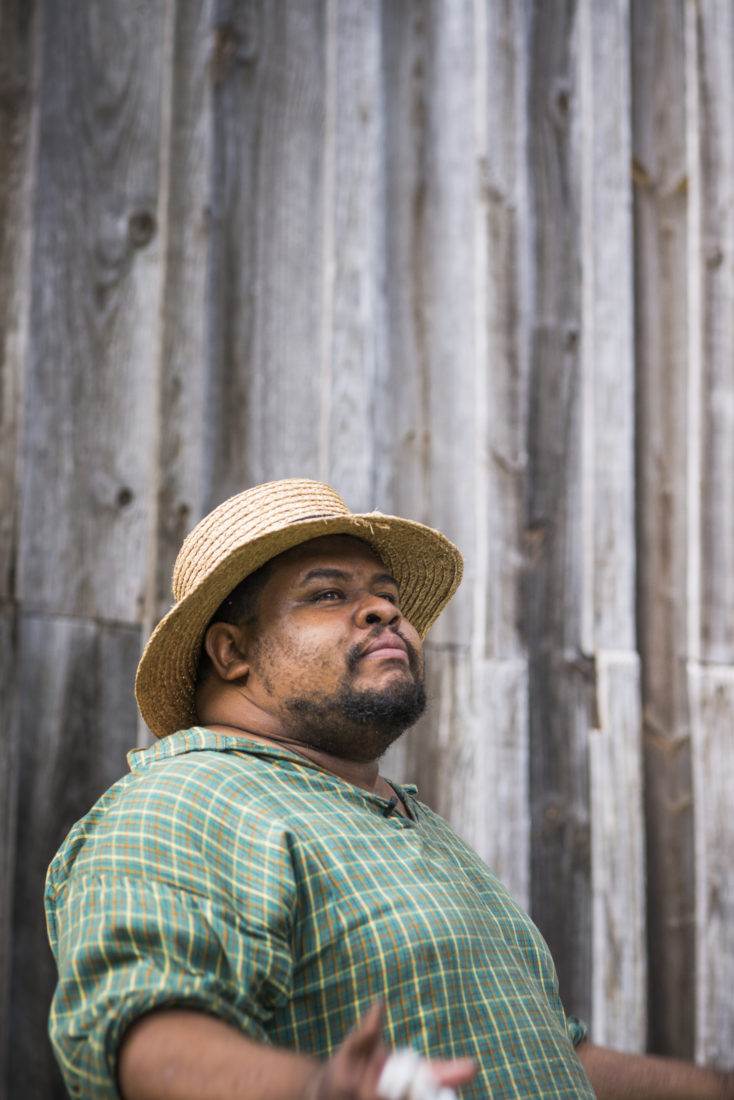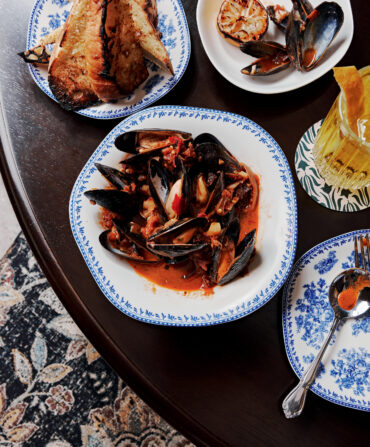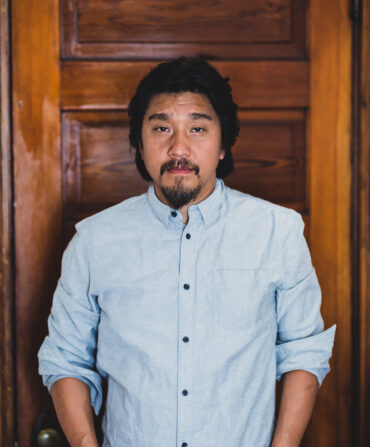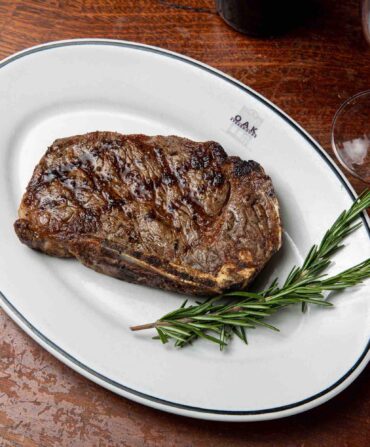Michael Twitty has never been busier.
Since he first appeared in G&G in 2014, the Washington, D.C.-based African-American culinary historian has been sharing food and insight with audiences from Colonial Williamsburg to Accra, Ghana.
In 2017, he published his first book—The Cooking Gene, a deeply personal journey to the roots of Southern food. He’s hardly stopped moving since. Now, he’s on his way to New York City, where his book is up for top honors at this Friday’s prestigious James Beard Media Awards. Earlier this week, we caught up with him for a few minutes between trips to Holly Springs, Mississippi, and Toronto, Ontario.
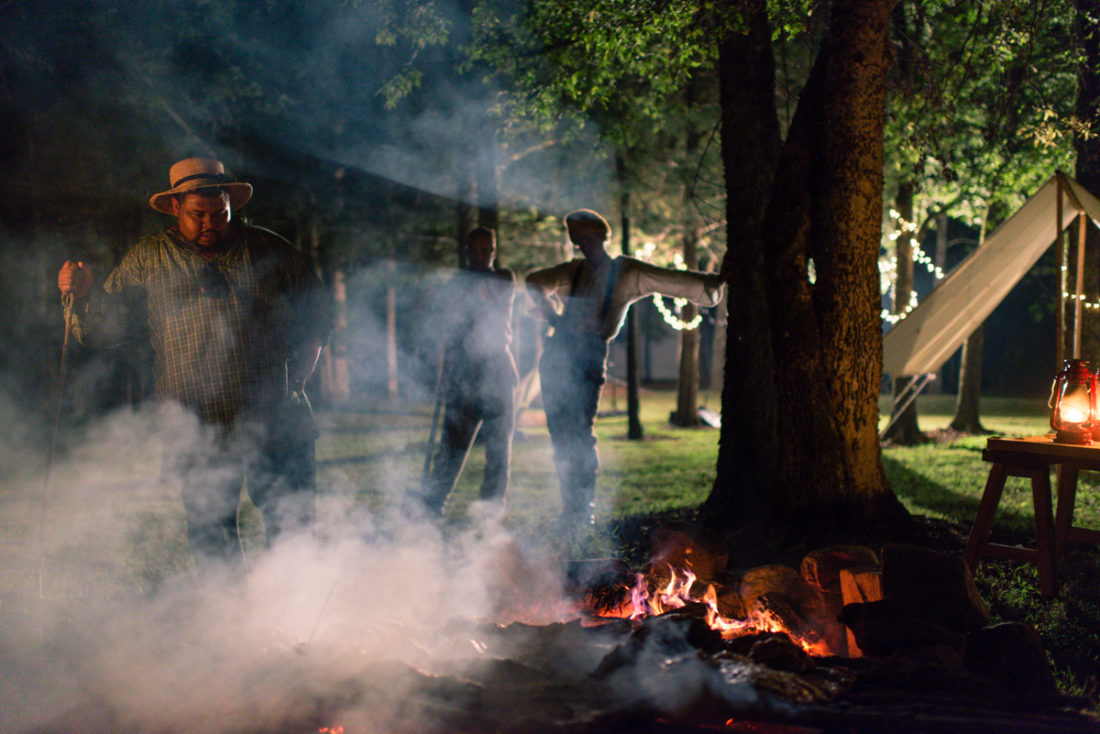
Photo: Andrew Kornylak
Twitty tending the fire pit at an event at North Carolina’s Stagville Plantation that educated attendees about the lives of the enslaved.
So, how do you feel about the book’s reception?
A professor who introduced me at an event recently said that I was giving people of color permission to write about food in a way they never had before—to write about themselves and their histories. I was very proud of that.
For an author, the first goal is to make back that advance. I made back my advance in five months. That’s helpful. We’re on our fifth printing of the hardcover edition, with a paperback edition coming out this summer. So, okay, that’s cool.
Why did you decide to make your first book a personal narrative, instead of a broader history, or—and I know others have brought this up with you—a cookbook?
When we talk about flashpoints like race and slavery and history and heritage, we tend to talk in terms of strawmen—abstractions. I want to communicate, when I’m talking about slavery, that it isn’t some spectral event. It isn’t a ghost. It’s in blood and bone. Here’s how this affects everything from your health to how you cook to how you relate to other people.
People say things like, “I came here for the food, for the recipe secrets. Or I came here for the history. I don’t care about his personal life.” They don’t seem to understand that black lives don’t just matter when you’re a corpse on the sidewalk. That applies to the lived experience of black people, too, and that experience is so often not part of the story.
You’ve been to Africa twice since you turned in your manuscript. Has that changed your perspective on Southern food and culture at all?
First, I felt a deep sense of connection. When you have that food over there, that reminds you of something you had in your Southern upbringing, it sets a fire under you—because it makes you feel like, “Wow, I come from somewhere. I’m connected to something.” That’s not an easy feeling to have for many black people.
You can read about Africa in a textbook, but it’s something else to see people—people cooking the food—who remind you of people back home. Here in America, I see faces, now, that take me back to Ghana and Senegal. Then, it all starts to make sense.
There’s a disconnect between Africans and African-Americans, and it goes both ways: A lot of African-Americans don’t know the story of colonialism in Africa, and how it affected people, and a lot of Africans don’t know our story. So going to Africa is also an opportunity to tell African people about our experience, and the traditions we carry forward in the United States.
Race is a major national topic of discussion again—in a way that, maybe, it wasn’t when you started writing your book. Do you feel like America is moving in the right direction?
Absolutely. Let me tell you why: I think the cat is out of the bag, as the cliché goes.
We did not think our weak spot was race. We thought we worked that out when we elected a black man president. Now, we know we were wrong. We have to fight it out, and that happens in the voting booth and it happens with protests in the street. We’ve been so passive aggressive about race, and now it’s time for that to change. If protests weren’t happening, I would say that we were moving in the wrong direction.
What do hope that readers—of all races—will take away from your book?
That we’re a family. That you cannot eat something from another culture that you love dearly, and have made a part of your soul, and see those people as strangers. And I want people of all races to say, hey, you know what, I want to do this for my family and my traditions. I want to see if I can work my way back through the generations through food. I want to know what food stories we have in us. I want white and black families who are connected to see how those different food stories play out in their own families. I want us to stop fighting a hundred-and-fifty-year-old war and give our children a chance at living in peace.
If you win, how will you celebrate?
Well, I don’t know—because the very next day, I’m doing a presentation in Virginia.


